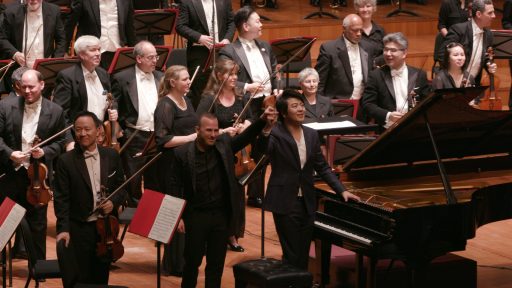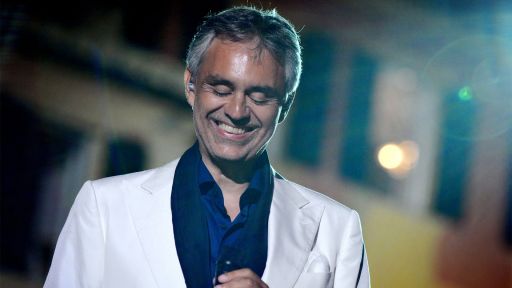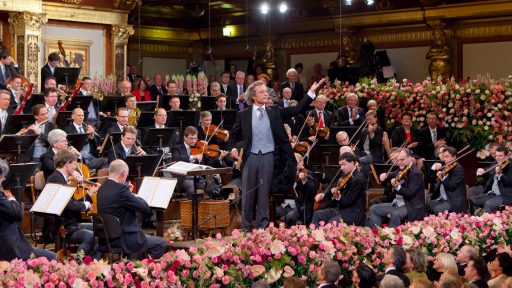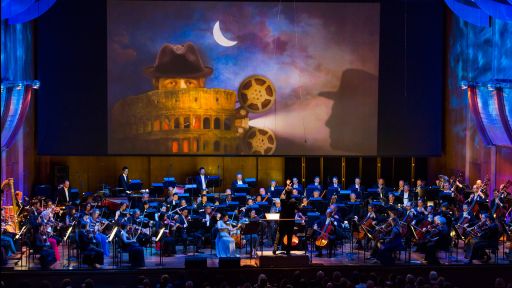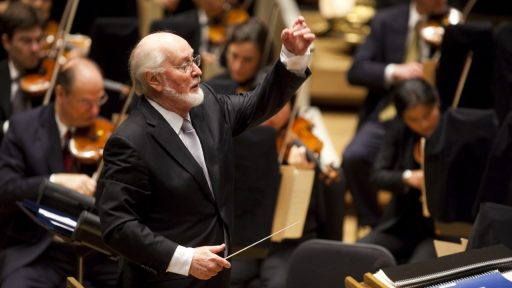Conductor Marin Alsop and actor Jaye Ladymore discuss the history behind Leonard Bernstein’s “Kaddish.”
Features
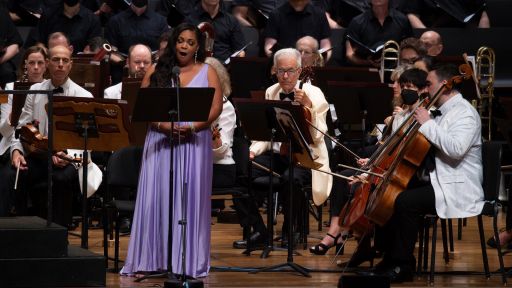
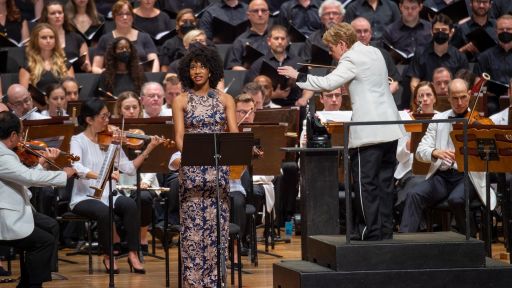
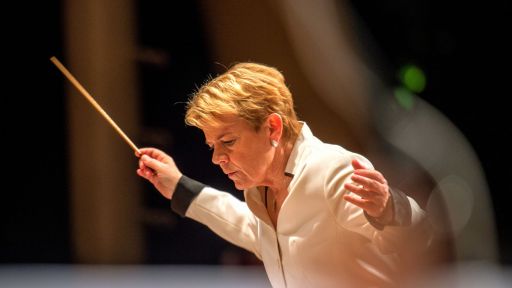
My feeling always was that Bernstein wrote music as an outlet for his belief system, for his philosophy about life.
And his goal really was to connect all the dots in life so that in a piece of music, it's not really just a piece of music.
The music is just the vehicle to express his concern about the world or his love for the world or his worry.
And this piece, of course, the Kaddish Symphony -- his last symphony, the third symphony -- is a very complex piece because it's not only about the world he was inhabiting.
It's also about the world of his family.
You know, of course, his father was deeply religious, and he comes from a very, very, very serious, I would say, even heavy Jewish tradition and culture.
And he had to try to find his way with I' m not Jewish, so it's a little bit difficult for me to really understand.
I think the the cultural context of the Kaddish.
But I do know that it's the most important prayer in the Jewish tradition and it's a prayer that not only remembers people who have passed, but it also celebrates the cycle of life.
So it ends up being a prayer of positivity rather than of mourning.
Kaddish -- I looked up what that word means in general, and I saw that it was a prayer for the dead without actually mentioning death, which I found an absolutely fascinating concept.
In his inimitable way, he uses forces that you don't expect.
So of course we have a choir.
All right, Beethoven did that.
We have a choir.
We have Oh, Mahler d We have a narrator.
That's a new idea.
We have a Yo u know, there are all these elements that he because I think for Bernstein, it's also about community.
It's about creating a family on stage as well as a family in the audience.
You May Also Like
